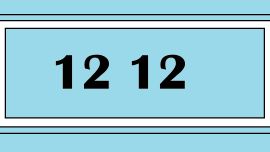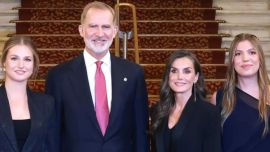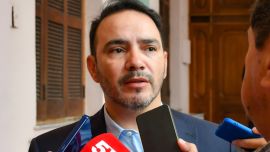While solid enough in the Senate with 42 of the 72 seats, an overall majority in the Chamber of Deputies still eludes him, but he came much closer earlier in the month with the desertion of three Juntos por el Cambio deputies – and his proven talents for cherry-picking among the opposition while Cabinet chief (2003- 2008) should offer plenty of scope. As for commitments, Fernández has promised everything and nothing – plenty said to sectors and individuals (usually telling them what they wanted to hear and thus often contradictory) but no ironclad promises have been made to the national electorate, like Mauricio Macri in 2015, to raise the bar.
But despite this lack of commitments, Fernández already gave certain pre-inauguration clues as to priorities and policy with his Cabinet. Obviously the economy takes top priority but there are mixed messages as to whether Martín Guzmán will be a kind of mini-Cabinet chief over five socio-economic portfolios or with an exclusive focus on debt negotiations. The absence of a ministry can say as much as its creation within an expanded 21-member Cabinet – thus there is no Mining Ministry, as proposed by Fernández during the election campaign, while Environment has been restored to ministerial status. Most of the 10 additions fall into the latter category but the portfolios for housing and gender equality are complete innovations, both indicating new priorities. The choice of Felipe Solá (a trained agronomist, former Buenos Aires Province governor and political veteran, but with zero diplomatic credentials) as foreign minister points to an inward-looking government.
Last Tuesday’s inaugural address, lasting almost an hour, had the scope of a state-of-the-nation speech, but it was stronger on destinations than a road map. In general, the thrust seemed to be to kick the ball ahead to a socio-economic council – the main priority is to revive a stricken economy where the new president could find no redeeming feature (if he had tried a little harder, he might have found the odd brightspot like the trade surplus) while the loudest applause within Congress was drawn by his “nunca más,” or “never again,” to the “judicial persecution” of Kirchnerite leaders, but not much in the way of hows beyond placing AFI intelligence under trusteeship. On the economic front, more information emerged on Wednesday at new Economy Minister Martín Guzmán’s press conference on Wednesday, with the official saying he would delay bond payments to private bondholders, though true details were scarce on the ground.
The most positive feature of this inaugural week may well be that Alberto Fernández could be succeeding in his stated aim of healing the “grieta” rift both through and beyond his own merit. Through his own merit because the inauguration obeyed both the letter and the spirit of the Constitution. The insistent rumours that Vice-President Cristina Fernández de Kirchner would be jumping the queue in order to swear in the president herself as a power play proved unfounded (for the good of Argentina’s image in the world) with outgoing vice-president Gabriela Michetti doing the honours as constitutionally ordained, while outgoing President Macri stayed a good loser to the end. And also beyond any plans because if an intensely electoral year polarised almost 90 percent of the vote and over 90 percent of Congress, the complexity of both coalitions makes this polarisation precarious.
If a week is a long time in politics
according to Britain’s Harold Wilson,
what are 207 weeks in Argentina?related news





















Comments